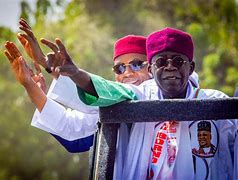Despite the accolades for the innovative use of technology and its planned role in ensuring a successful presidential and national assembly election, the process was not without a glitch.
Nigeria is home to Africa’s most vibrant democracy and booming tech sector, but the 2023 Presidential Election showed that the nation is still light years away from achieving digitalization in its elections.
With a high internet penetration rate, one would expect the country’s tech bros and sis’ to have made a significant impact on the way the election was conducted. Unfortunately, this was not the case, the limited use of technology in the just concluded presidential election raises questions about the role of tech in Nigeria’s elections.
INEC’S role in the election: Matters arising.
The Nigeria presidential election 2023 polls were expected to be a milestone in our democratic journey, especially with the increased involvement of young people in the electoral process. This lofty expectation fell flat as social media is provoked with evidence of voter bullying, violence, and misappropriation of results, as well as reports of malfunctioning BVAS, which shows us that Nigeria’s elections are still largely analogue.
Despite the accolades for the innovative use of technology and its planned role in ensuring a successful presidential and national assembly election, the process was not without a glitch.
Some voters expressed their frustration during voting on Election Day due to the failure of the Bimodal Voter Accreditation System (BVAS). Some attributed the failure to the incompetency of some of the INEC officials.
Why did Nigeria’s tech giants not step in to help? How did the government fail to recognize the potential of tech in making the election more secure and efficient?
These questions must be answered if Nigeria is to take its elections from analogue to digital.
All stakeholders must come together and develop a comprehensive plan to address the security and efficiency issues that have plagued the country’s elections for so long. Such a plan must involve the full participation of the tech communities, including the country’s globally celebrated tech unicorns.
The case for the techies
One can understand that for the big tech players to liaise with INEC is like passing a thread through the eye of a needle, as the existing bureaucracy in the Nigerian government agencies already stands as a stumbling block.
Unfortunately, many Nigerians lack trust in the electoral process due to the history of irregularities, fraud, and violence in previous elections.
This lack of trust undermines the willingness of Nigerians to embrace the supposed goodwill of our tech giants in elections, as they fear that the technology may be manipulated or compromised in some way.
Another challenge is the lack of adequate infrastructure and resources to support the use of technology in elections. While Nigeria has vibrant tech communities, the infrastructure and resources required to support the use of technology in elections are lacking. These include;
1. Internet connectivity in rural areas,
2. Power supply,
3. and trained personnel to manage the technology.
The lack of infrastructure and resources means that the use of technology in elections may not be feasible in some parts of the country, which could further worsen the problem of unequal representation and participation in the electoral process.
For example, some observers have suggested the use of biometric voter registries to prevent fraudulent voting, as well as the implementation of online voting platforms to enable Nigerians in the diaspora to cast their votes from anywhere. Others have called for the introduction of blockchain-based voting systems to ensure the security and accuracy of the electoral process.
Despite these challenges, the potential benefits of technology in Nigerian elections cannot be overemphasized. The use of real-time collation and transmission of results can also help to reduce the time it takes to announce election results, thereby reducing the tension and anxiety that often accompany election periods.
What the people are saying
“Counting ballot papers manually in 2023 is razz”, this was the tweet that stood out on Saturday evening as polling unit results trickled in.






Leave a Reply
By clicking the button above, you thereby agree to our Terms and Conditions regarding privacy information.